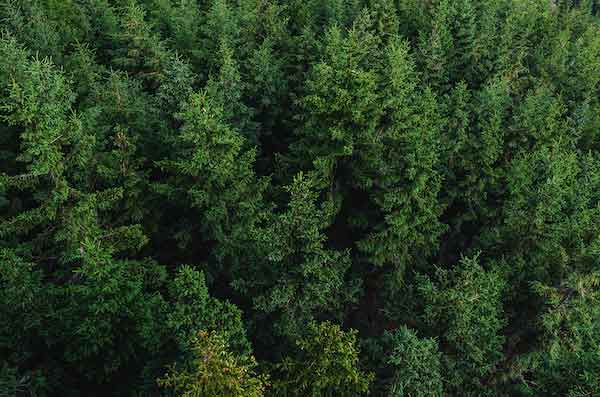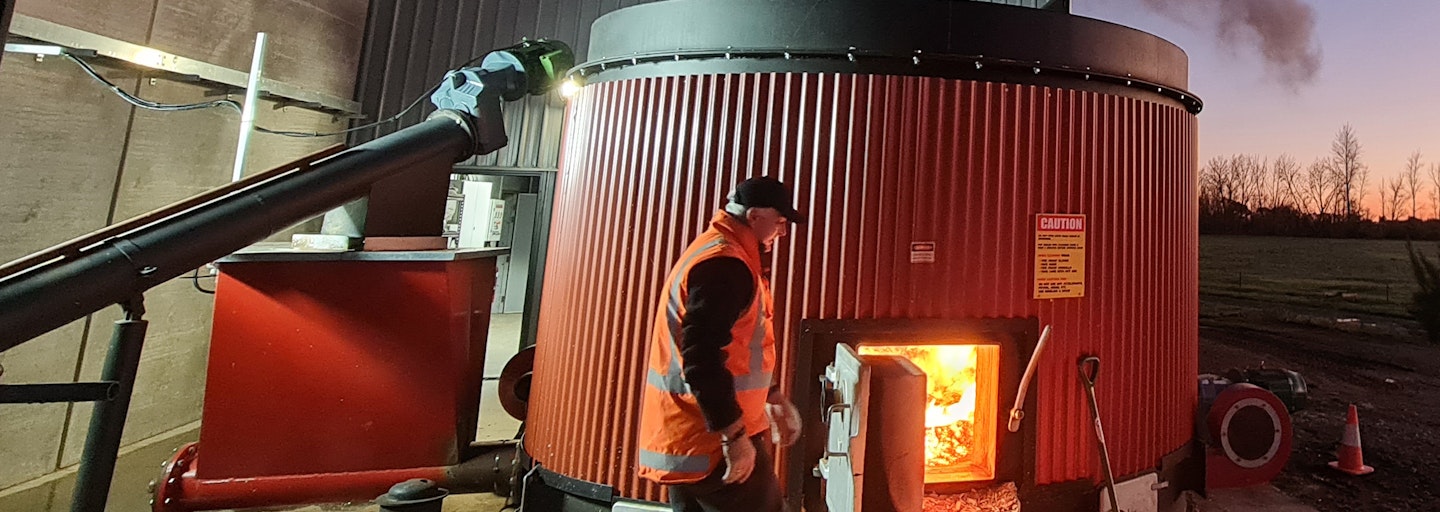Clinker Formation in Biomass Boiler: What it is and how to prevent it
Clinker formation in your biomass boiler is a good way of determining if you are burning low-quality wood fuel. When there is clinker present you won't be getting the most out of your fuel.
What is clinker?
Clinker is pieces of crystallised impurities in biomass fuel - they can live in any type of solid wood fuel, but in this post, we'll just be talking about clinker from wood fuels such as wood chip & pellet fuels.
Clinker is the most significant factor in determining wood fuel quality. When there is clinker present you won't be getting the most out of your fuel. A way of knowing if you are burning quality biomass fuel that is completely combusting and free from impurities is when there is little to no clinker present.
Understand the difference between clinker and ash fusion.
What causes clinker formation in a biomass boiler?
Clinker is formed by burned or partially burned low-quality biomass fuel. The impurities found in low-quality wood fuel, such as silica, potassium, sodium, aluminum, and calcium, will react at high temperatures melting into clumps and forming a solid residue. This can result in operational and financial challenges.
Clinker impurities also include binders and glues commonly found in wood fuel, when the fuel is sourced from landfill diverted timber.
Wood Fuel Source
Where your wood fuel comes from can affect clinker formation. A good example of this is wood fuel that comes from areas with high silica content in the soils.
Silica is present in soils formed from rocks and can be found in volcanic areas. Logs sourced from areas with high silica content are known to create a higher volume of clinker when burned.
While it is impossible to source raw materials from forestry sites that are completely free of these impurities, there are some locations that offer a higher quality wood fuel source than others.
We can’t control silica embedded in timber but we can control our processes of removing these impurities in our biomass fuel.
The Azwood® biomass fuel range is certified to the ISO standards or Enplus®. To comply with their strict standards we have to test and record the supply chain to ensure high quality in feed to meet the required wood fuel specifications.
“It’s about finding the right recipe and making small tweaks to ensure consistency for optimum boiler performance.” - Azwood
Got questions? Ask our team.
Wood Fuel specifications
If you have pure clean wood that is free from impurities and your wood fuel is right for your biomass boiler you won’t get clinker.
Moisture, ash and fines content will vary depending on your wood fuel type and the right fuel for you will depend on your biomass boiler type.
It’s important to ensure the biomass fuel you are using is manufactured and supplied within the strict criteria for your boiler. If your fuel is not performing or you are finding an increase in clinker, first check you are using the right wood fuel.
High ash content
High moisture content
High wood fines content
Certified wood fuel
*Please note that, regardless of the quality of the fuel, it is important to understand that complete absence of clinker is nearly impossible to achieve. Even with the use of high-quality fuel, there may still be traces of clinker present.
How clinker affects boiler systems
Furnace blockage - Clinker forms a solid residue that can block boilers, reducing their efficiency or could even cause a breakdown.
Higher maintenance costs - Blockages and build-up mean your biomass boiler will need to be cleaned constantly to clear away any clinker, wood fines or ash remains. This increases the downtime and the chance of boiler breakdowns, which costs more in the long run.
Increased wood fuel consumption - Clinker can increase wood fuel consumption by reducing the flow of air to the fire, causing incomplete combustion which results in more wood fuel required to produce the same amount of heat.
What is the difference between clinker and ash fusion?
Can you tell the difference between clinker and ash fusion in your biomass boiler system?
Although easily mistaken for clinker, ash fusion is a sign of good quality wood fuel. This is caused when ash melts. This means your biomass fuel is burning even hotter than the ash melting temperature so it begins to liquefy. So essentially it's burning twice! Ash fusion looks similar to pumice and is easy to break whereas clinker has a shiny molten look and is rock solid.
Ways to prevent clinker formation in a biomass boiler
Prevent ash build-up
Regular servicing, maintenance and cleaning are essential. More specifically, it's important to service the combustion chambers, the heat exchanger, and the flue system.
Use quality pellet fuel or wood chip fuel
High ash and fines content are a sign of low-quality wood fuel and can cause an increase in clinker formation. As mentioned previously, if you have pure clean wood that is free from impurities and your fuel is right for your biomass boiler you won’t get clinker.
Specialist boiler tuning
This is important to make sure you are getting the most output from your wood fuel. You can lose energy from using too much air or waste energy from running too richly. Finding the right air-to-fuel ratio provides the optimum energy output and reduces the formation of clinker.
Factors to consider when choosing a quality biomass wood fuel
Moisture content
Choose a wood-based fuel with an optimal moisture content fit for your boiler system. All systems vary and it is not a one size fits all product.
Look for accreditation
Azwood® wood fuels are certified by internationally recognised certification schemes.
We work with our clients to recommend the right wood fuel grade for the specifications of your biomass boiler and the consistency of our wood fuel products means you will get the most out of your fuel.
Ask us about how you can make the switch to renewable energy.
Azwood® wood pellets are Enplus® A1 certified
The ENplus® scheme is the only one that systematically certifies the entire supply chain, from the early stages of production to the delivery process. In addition to the technical standards for producing ENplus® pellets, which is the core of the certification scheme, all parties along the supply chain follow detailed guidelines and receive dedicated training to ensure consistent quality, the cornerstone of the ENplus® certification.
Azwood® wood chips are externally audited and accredited
At Azwood, we manufacture our wood fuel range under a regulated, audited (annually), internationally recognised, controlled framework that guarantees wood fuel specifications and consistency.
Managing the quality of wood chips can be challenging due to the numerous variables involved in production. Without an established quality system in place, it becomes difficult for individuals to confidently ensure the quality of the product which makes it easy to deviate and provide off-spec products.
Azwood has an onsite laboratory where every load that is produced will be tested and verified to confirm it meets the ISO standards. Additionally, we are audited every year by an external auditor to ensure we are complying with their criteria.
Related articles

Follow us
More from Azwood
Connect with us on social media to learn more and be the first to hear our latest industry updates

